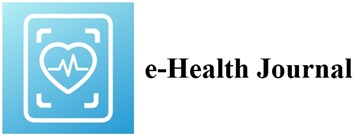Misconduct Policy
Sin-Chn Scientific Press adopts a zero-tolerance policy on misconduct, and strictly abides by the Core Practices of COPE. Authorship by ghost or non-contributors is strictly prohibited by the publisher. Meta-data on the research work must be preserved for possible editorial needs, such as investigating and verifying data. Authors must declare potential conflicts of interest, and the publisher will keep personal information strictly confidential and will vigorously investigate allegations of misconduct.
The publisher will follow COPE guidelines to deal with allegations of misconduct before or after publication. Where necessary, the journal office will work with the authors’ institutes to investigate an allegation. Authors’ institutes are obliged to cooperate to ensure the scientific reliability of the research.
The publisher welcomes original articles, and prohibits all academic misconduct, such as plagiarism, duplicate publication, multiple submissions, and academic fraud.
Plagiarism
A new submission should not be submitted or published anywhere yet. If any part has been published before, authors should inform the editors in the cover letter. Each submission will be checked for the originality via Crossref Similarity Check (powered by iThenticate). The journal will set similarity thresholds, and articles are not recommended to exceed them, except for material methods and references where appropriate. Authors are discouraged from excessive quoting or use of published content. If plagiarism is detected or verified in the peer review process, the manuscript will be rejected. If it is detected or verified after publication, a retraction will be issued.
Duplicate submissions
Authors should respect science and academic ethics, and it is considered unethical to submit a manuscript to different journals at the same time. The publisher only welcomes original manuscripts that have not been published in other journals or in another language. Authors are encouraged to state the originality in a cover letter.
Any types of reuse of others’ words and charts should be approved by the copyright holder. It is the author’s responsibility to obtain this permission before submitting a manuscript, which should be stated in a cover letter.
Fabrication and falsification
The publisher respects science and facts, and strictly prohibits all possible data falsification and data fabrication, which involves extremely serious issues of academic ethics and affects authors’ academic reputation internationally, and we remind scholars to be careful with their scientific work.
Authors are encouraged to provide or deposit data in a data repository with a recognized ID link. Editors may verify the experimental meta-data for scientific reliability. Authors will be notified as soon as a suspected data problem is detected. Authors are required to respond to the query until the editor is satisfied. Incorrect, unscientific, or fabricated data will adversely affect the conclusions of the manuscript. In such cases, the journal office will conduct an investigation in cooperation with the author’s institution. Once fabrication or falsification is verified, the journal office will reject the manuscript and notify the author to withdraw the stored data.
Manipulation
The Editor-in-Chief oversees the entire editorial process and avoids potential manipulation by declaring conflicts of interest. In addition to this, manipulation involves excessive self-citation, and peer review manipulation by editorial office staff. The publisher follows COPE’s guidelines on handling peer review manipulation suspected after publication and during peer review process.
Peer review manipulation mainly involves the possibility of editorial manipulation, which refers to ethical issues. Once peer review manipulation is verified, the editorial staff will be seriously treated, or even fired.
Excessive citation of reviewers’ works means that reviewers suggest authors cite reviewers’ own works without appropriate grounds. The journal office will critically review all references for relevance and eliminate all unjustified citations.
Excessive self-citation of authors’ works means that authors cite their own published works. The journal office set self-citation thresholds for authors, which authors must strictly adhere to for eliminating the suspicion of manipulation to increase citations.
Complaint and appeal
For complaints and appeals against misconduct, the publisher will treat it following the guidelines on handling Allegations of Misconduct provided by COPE. More details, please refer to the complaint and appeal.



 Submit a Paper
Submit a Paper